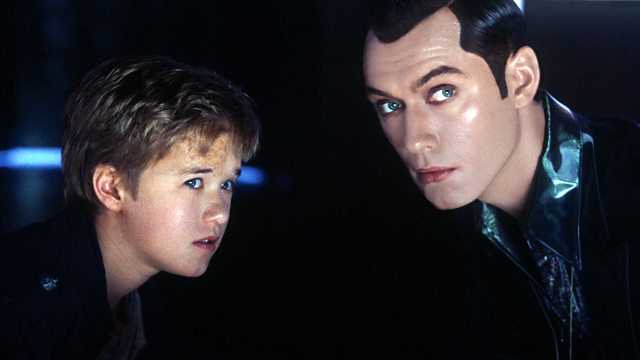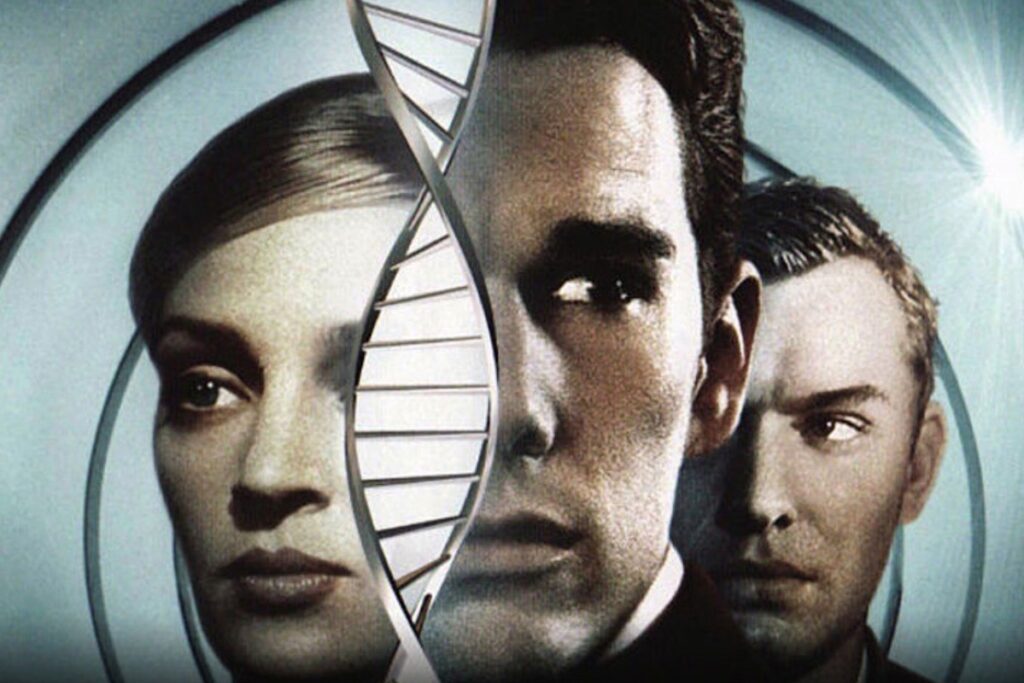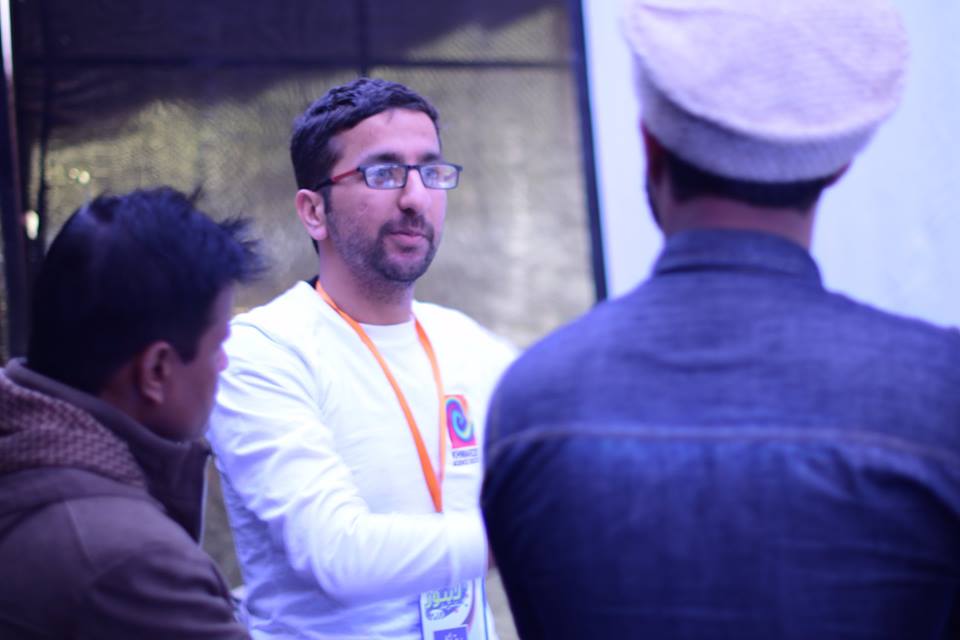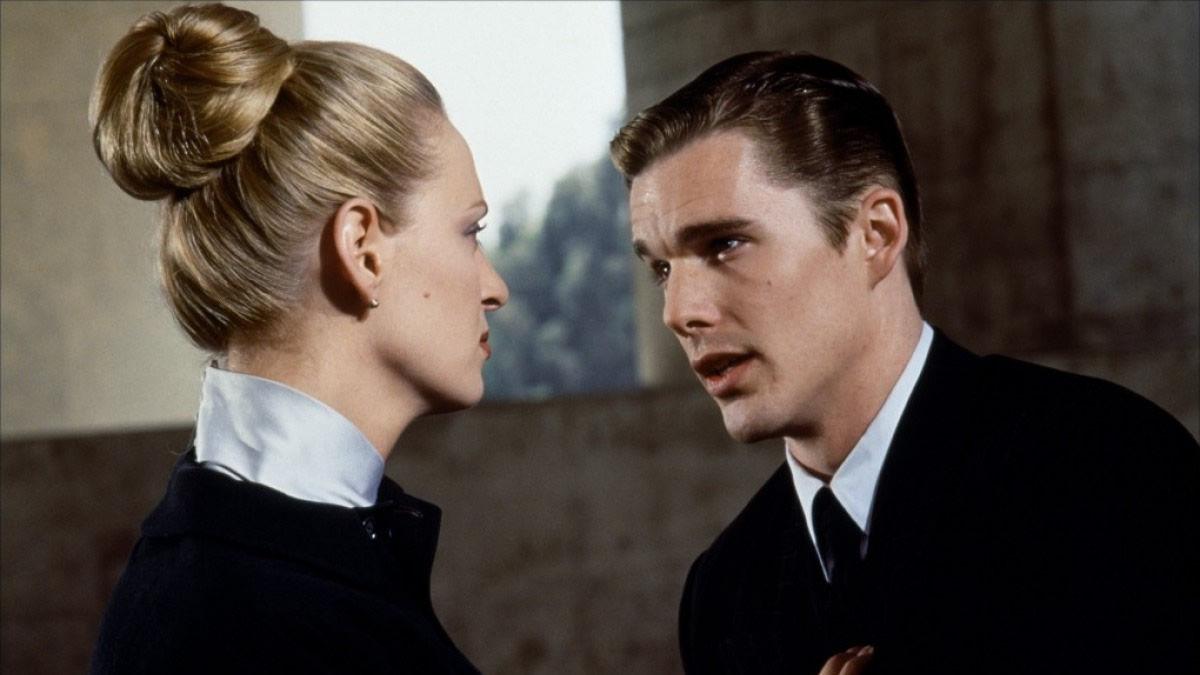Following the theme of our edition this month, we visited some AI movies of the past and their unique stories that have managed to make an impact.
A.I. Artificial Intelligence
A 2001 thriller movie, A.I. artificial intelligence, was a sci-fi movie but unique to what one can think of. Greatness and miscalculation competition in Steven Spielberg’s saga, “A.I. Artificial Intelligence,” was a movie equally beautiful and maddening. This is one of the most ambitious films, filled with fascinating sights and stimulating ideas, and featured a debate that:
“To invest our emotions in a character that is, after all, a Machine.“
The story features Professor Hobby, who proposes to build a robot-child who can love; a genuine love that will never end. An exciting, as well as an essential question, rises that is, “If a robot can genuinely love a person, can you get a human to love them back?“, asked by a peer during the discussion. And the answer turns out to be the oldest one of all, the basic one: “Didn’t God create Adam to love him?”.

The film revolves around a mother who has lost his sole son, Martin, due to a rare disease. She goes through a tough time and so does the father. This tragedy makes them qualified to adopt the first-ever chid-robot, David. The movie beautifully captures the emotional hindrances and the attachments between David and his mother.
But the climax arrives when doctors somehow manage to save Martin, and there appears the competition among the two brothers, a real boy versus a man-made child. This encounter triggers the jealousy among Martin and David and forces them to perform worrisome acts. At a pool party, one of Martin’s friends pokes David with a knife, triggering his self-protection programming. David grabs the boy, and they both fall into the pool. Martin is saved before he drowns, but an agreement is reached to return David to his creators to be destroyed.
On the way there, Monica’s heart diverges and she spares David from destruction and leaves him in the woods. With Teddy as his only accompaniment, David recalls the Blue Fairy so that she may convert him into a real boy. Finally, David gets a chance to meet Professor Hobby, his creator, who tells him about man’s ability to love and desire. Unfortunately, David finds several copies of him, and he eventually loses his sense of individuality. The suspenseful story continues and the brilliant execution by the director makes it worth to watch.
Gattaca
Directed & written by Andrew Niccol, Gattaca is a 1997 American sci-fi film based on the phenomenon of Artificial intelligence. A precognition attempt of the society, in which biopunk and artificially intelligent humans rule the world as superior creatures. Gattaca was a 1997 nominee for the Academy Award for Best Art Direction and the Golden Globe Award for Best Original Score. In a one-line summary, the movie shows,
“A genetically inferior man adopts the identity of a superior one to pursue his lifelong dream of space travel.“
Space-traveling has been being the most influential aspect in the field of science for decades. Galileo Galilei’s astronomical telescope brought out the scientific revolution. It was the work of Galileo which prompted Sir Issac Newton. Astronomy has always been the most significant influence for the literate as well for illiterate ones.

The movie revolves around Vincent, who lives in a future where genetic profiling has divided society into Superior (Valid) – those whose DNA has been fettled to maturity before birth – and Inferior (In-valids) – those conceived naturally, with all potential genetic flaws. Here Valids get to pick the best jobs, and Invalids are assigned to abject tasks like cleaning offices.
Vincent Freeman is conceived without the help of genetic selection; while his brother Anton’s birth involves the role of scientific innovation. The life of Vincent was terrible because his superior brother always wins. Growing up, the two brothers frequently compete on swimming out to sea as far as they can which Vincent always loses.
“One day, he realized, that one day he can wins.“
One day they lengthen the race, to the farthest shores, but Anton starts to drown and Vincent saves him and he ends up winning. His enthusiasm for science provides him a determination to succeed, even if he had to break the laws to have his dream job at Gattaca – a space agency.
Fortunately, he finds a back door to fulfill his dream. A man named Jerome Morrow is a Valid/Superior human but was left paralyzed after a car accident. Vincent takes over the identity of Jerome with mutual consent. But the price of identity came up with consequences; Vincent even had to cut his legs to be equally heightened as Jerome. Each day before work, Vincent scrubbed his own significant DNA from the loose skin and hair on his body, before heading to the office with samples of Jerome’s blood, hair, and urine.
There were numerous DNA checks by both machines and doctors, but Vincent was smart enough to pass them. That continued until a murder incident at Gattaca which attracts the attention of a very suspicious Detective Hugo, and Vincent seems to be always on the cusp of being found out as the suspect.
How did he manage to save himself from this? Was he able to achieve his dream of space travel? This is now a hidden climax to be explored by you. It is an exciting feature and one must watch this ambitious movie.
READ ALSO: The Rise of Machines: A Dilemma of Digital age

Ahsan Javed is a passionate teacher working as a secondary school educator (SSE). He loves to motivate his students for practical sciences. He is currently doing PhD in Physics, after being graduated from LUMS. He was a part of Lahore Science Mela (2019) as a mentor while his project in LSM18 was ranked to be the most loving.

